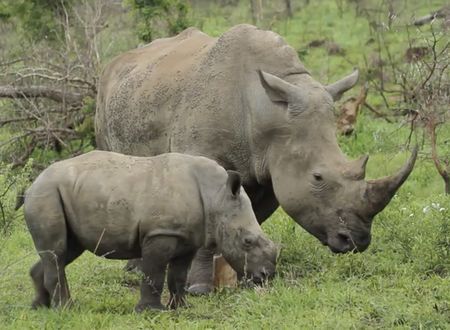Back in June 2005, I was sharing my spiritual goals with a small group in Sydney. The general drift of the conversation was as casual as the outdoor setting we were in. Basking in the beautiful winter sun, we’d just had a working lunch and everyone was busy digging into their brownies, cakes, and ice-creams. I was particularly, if not annoyingly, health-conscious back then and settled for a latte. I’m more liberal these days. “So, where will your ashram be one day?” a colleague said. It was a simple question.
The immediate impact of that question on me, however, was anything but simple. You can say that it burst open a whole new world of possibilities. Until that moment, I had never thought of building a public place. My journey, in my mind, was simply about devoting myself to self-discovery no matter how long it took. I had not thought much about what I would do after. That one question would not only almost set the tone of my lifestyle, post my days of Himalayan solitude, but also give me the vision of creating a place where seekers could come together, a piece of paradise on earth where humanity could shift from being health-conscious to soul-conscious. I would go on record here and say that had I not been posed that question, and had I not reflected on it, there would perhaps be no omswami.org (along with the ashram) today.
And this leads me to the central thesis of this write-up: questions. Sometimes it can be inconvenient or even absurd, but inquisitiveness is at the root of every great solution we have in the present age. Indeed, the basis of insight (vipashya) is asking the right questions and that of self-realization (sakshatkar) is arriving at the right answer.
The very practice of contemplative meditation too is mostly the skill of keeping your concentration yoked to the singular line of inquiry that matters the most to you. For Ramana Maharishi, it was “Who am I?” For Buddha, it was “What is the truth?” Newton was nagged by “Why did the apple fall down?” Look around and you’ll discover that questions have created the foundation of all human progress.
But, they are of two kinds. The ones you ask and the ones you face. With the first type, you may get information in return, even some knowledge but they won’t liberate you or quench your thirst. It’s only from the questions that we face, that is, the ones we ask ourselves that help us grow. Just look back at your life. Every time you went through a difficult phase, you went through many whats, whys, and hows etc. And it was not the experience itself but the questions it evoked that transformed you.
A teacher asked the large class of five-year-olds, “What is the biggest thing in the world?”
“My daddy,” said one girl.
“An elephant,” answered a young boy who had recently been to the zoo.
“A mountain,” replied another.
“My eye is the biggest thing in the world,” said one young girl.
“How do you mean?” the teacher said.
“Well,” the little girl said, “my eye can see her daddy, and it can see an elephant. It can also see a mountain and many other things as well. Since all this can fit into my eye, my eye must be the biggest thing in the world!” 1
A good question you ask yourself is that eye that can see even the most gigantic structures. Having said that, insight comes from the questions we ponder upon and not necessarily from the ones we ask others. Put it this way, working out the answer yourself is like exercising and sweating out in the gym. Getting someone else to answer the query for you is akin to getting a massage. While both methods have certain advantages, you can’t substitute one for the other. And so, sometimes you’ll consult an expert but ultimately, it’s when you do the work yourself that you really get the answers. As you progress on the path, the quality of your inquiry (and answers too) improves.
Besides, you just never know which question may awaken your potential. That one conversation in 2005 acted as a profound trigger for me. And then there was another one in recent years that forced me to sit back and take note. Once again, it happened over coffee.
My next door neighbors in Sydney are a lovely couple: Catherine and Brian. She is a disciplined yoga practitioner and he, a golfer. Settled in their serene life post retirement, they are full of love and zest (an accurate representation and my experience of Australia). Brian had tried getting me back on the golf course a few times without success. “I’m not much of an outdoor person,” I would say, or, “I’ve some work I must finish.”
One day, after a sumptuous meal we were having coffee when somehow the topic switched to my schedule and insane working hours.
“Do Swamis ever retire?” Brian said.
“It’s not common,” I replied, “but I suppose, they can.”
So, can or should a Swami retire? Cast your vote below (they remain anonymous and can’t be traced back to your profile in any way).
Retirement for a renunciant, however, is not the same as not renewing their monastic vows. I may not have mentioned it earlier but in Hinduism, Buddhism and Jainism, monks have the option to forfeit their vows of renunciation. In some sects, the vows of monkhood are renewed every seven years while in some others it’s every twelve or fourteen years. And then you have numerous others where no such timeframes or methods exist.
Unlike giving back the ordination vows, taking retirement is a different ballgame. It basically means your life as a monk continues but your lifestyle changes. It’s similar to a doctor surrendering their medical license (relinquishing your vows) versus not practicing anymore (retirement). Even when they choose not to see patients, they don’t stop being a doctor. But yes, their utility to the world is then negligible, which invariably leads to the question: is a monk still a monk if he chooses to start living for himself and not for the world? Probably not. Thinking out loud. (Oh and don’t worry, it’s not like I’m dropping hints or retiring.)
At any rate, when you find yourself stuck and see no light at the end of the proverbial tunnel, it could be because you are not asking yourself the right questions. Often, seeking more answers is not as important as asking the right questions. And to that effect, you may want to reflect on the one most important question in your life that deserves your time and attention?
As for me, Brian’s question “Do Swamis retire?” has got me thinking.
Déjà vu.
Now then, will you be joining me for the virtual launch of Sadhana App on 1-Mar-2022 at 8 am IST? Participate in the live event and interaction on https://bit.ly/sadhana-live. It’s a big day for us. Your presence will make it bigger.
Peace.
Swami
- Please go here for the ashram events in Mar and Apr.
- My personal website is live on omswami.com. A big thank you to the team that worked diligently over the last seven months.
Notes
A GOOD STORY
There were four members in a household. Everybody, Somebody, Anybody and Nobody. A bill was overdue. Everybody thought Somebody would do it. Anybody could have done it but Nobody did it.
Don't leave empty-handed, consider contributing.It's a good thing to do today.[simpay id="204080"]









Comments & Discussion
352 COMMENTS
Please login to read members' comments and participate in the discussion.